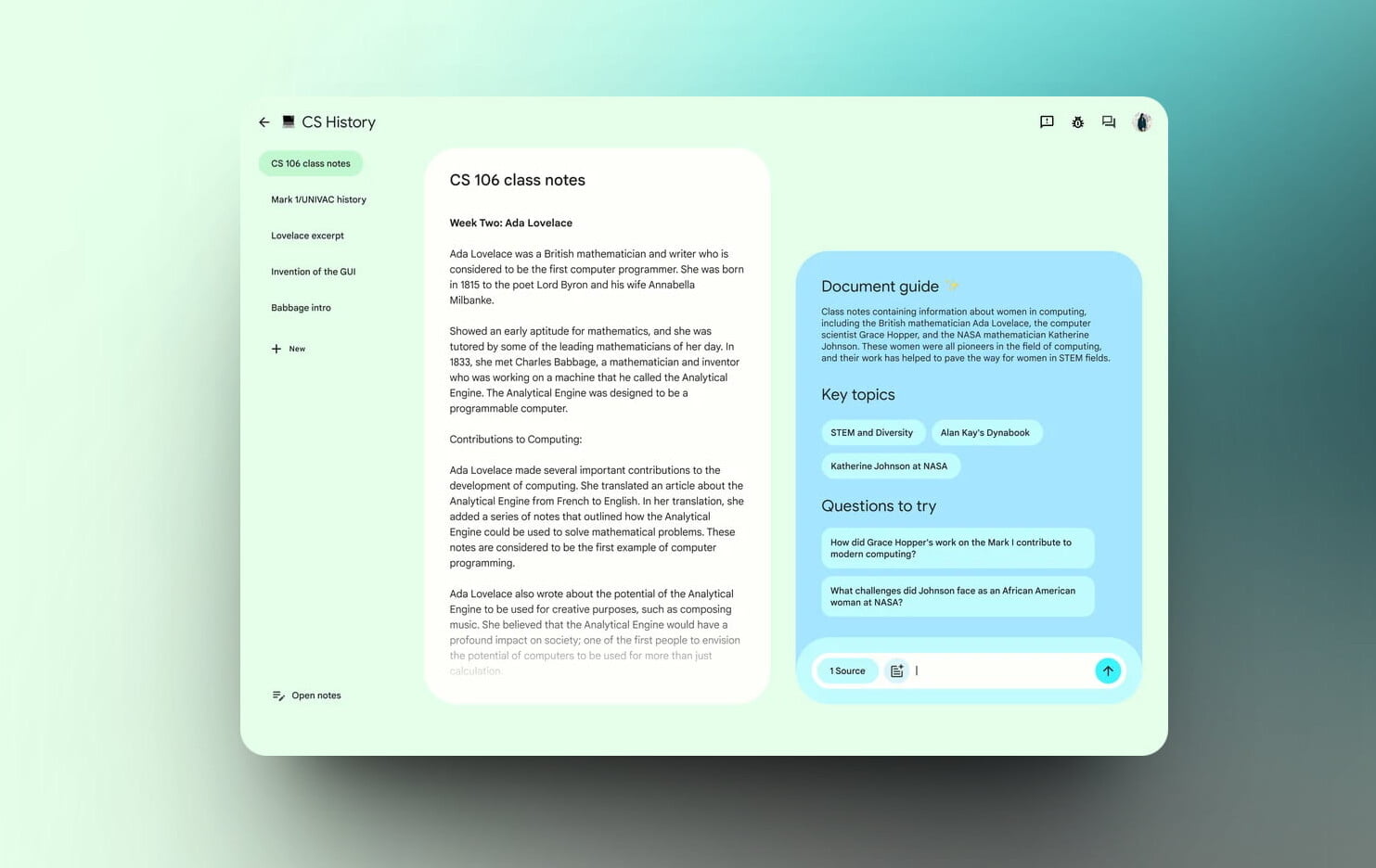Google's AI tool NotebookLM makes your personal data chattable

At this year's I/O developer conference, Google announced a number of new AI products. One of them was called "Project Tailwind", which is now being distributed to early testers as NotebookLM.
NotebookLM takes the concept of note-taking software and rethinks it from the ground up with a built-in language model. "We know people are struggling with the rapid growth of information — it's everywhere and it’s overwhelming," said Raiza Martin and Steven Johnson, product manager and editorial director, respectively, at Google's experimental workshop, Google Labs.
In conversations with students, professors, and other knowledge workers, one of the biggest challenges was synthesizing facts and ideas from multiple sources. Often they had the sources they wanted, but it was time-consuming to make the connections, according to Google engineers.
Hallucinations reduced but not eliminated
This is where NotebookLM comes in. It can summarize, answer questions, and generate creative ideas.
Google positions it as a research tool that synthesizes facts, explains complex thoughts, and makes new connections. It does this by referencing only the sources you choose, rather than the entire knowledge of the language model.
This is the key difference from a conventional AI chatbot and a step towards personalized AI. Initially, NotebookLM will only be fed documents from Google Docs, but other formats will soon follow.
Although linking to your documents minimizes the risk of the AI hallucinating, Google emphasizes the need for fact-checking. If multiple sources are used, each answer will be accompanied by the most relevant original quotes from each source.
Notebook data will not be used for AI training, Google says
Giving Google, or any other large language model, access to your data has often been equated with making that data available for AI training. That's why the blog post emphasizes that NotebookLM will only access the data you explicitly provide, which will not be used for AI training and will not be visible to other users.
NotebookLM will initially be available to a small group of users in the U.S., and Google does not mention an official release date. However, interested users can sign up for a waiting list. It could be a race with OpenAI, which is also working on customizable ChatGPT models.
AI News Without the Hype – Curated by Humans
As a THE DECODER subscriber, you get ad-free reading, our weekly AI newsletter, the exclusive "AI Radar" Frontier Report 6× per year, access to comments, and our complete archive.
Subscribe nowAI news without the hype
Curated by humans.
- Over 20 percent launch discount.
- Read without distractions – no Google ads.
- Access to comments and community discussions.
- Weekly AI newsletter.
- 6 times a year: “AI Radar” – deep dives on key AI topics.
- Up to 25 % off on KI Pro online events.
- Access to our full ten-year archive.
- Get the latest AI news from The Decoder.